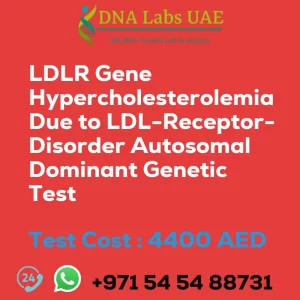PTS Gene Hyperphenylalaninemia BH4-deficient type A Genetic Test
Price: 4400.0 AED
Sample Condition: Blood or Extracted DNA or One drop Blood on FTA Card
Report Delivery: 3 to 4 Weeks
Method: NGS Technology
Test Type: Metabolic Disorders
Doctor: General Physician
Test Department: Genetics
Pre Test Information:
- Clinical History of Patient who is going for PTS Gene Hyperphenylalaninemia, BH4-deficient, type A NGS Genetic DNA Test
- A Genetic Counselling session to draw a pedigree chart of family members affected with Hyperphenylalaninemia, BH4-deficient, type A
Test Details:
PTS Gene Hyperphenylalaninemia, BH4-deficient, type A NGS Genetic Test is a genetic test that analyzes the PTS gene for mutations associated with hyperphenylalaninemia (HPA) and tetrahydrobiopterin (BH4) deficiency type A. HPA is a condition characterized by high levels of phenylalanine in the blood, which can lead to intellectual disability and other neurological problems if not treated. BH4 is an essential cofactor for the production of neurotransmitters, and its deficiency can cause a range of neurological symptoms. The NGS (Next-Generation Sequencing) technique used in this genetic test allows for the simultaneous analysis of multiple genes, including the PTS gene, to identify any disease-causing mutations. By identifying specific mutations in the PTS gene, healthcare professionals can confirm a diagnosis of BH4-deficient HPA and provide appropriate treatment and management strategies. This genetic test is particularly beneficial for individuals with suspected HPA or BH4 deficiency type A, as it provides a more comprehensive analysis of the genetic variants associated with these conditions. It can also be useful for genetic counseling and family planning purposes, as it can identify carriers of the mutations and provide information about the likelihood of passing on the condition to future generations. It is important to note that this test should be ordered and interpreted by a qualified healthcare professional, such as a geneticist or genetic counselor, who can provide appropriate counseling and guidance based on the test results.
| Test Name | PTS Gene Hyperphenylalaninemia BH4-deficient type A Genetic Test |
|---|---|
| Components | |
| Price | 4400.0 AED |
| Sample Condition | Blood or Extracted DNA or One drop Blood on FTA Card |
| Report Delivery | 3 to 4 Weeks |
| Method | NGS Technology |
| Test type | Metabolic Disorders |
| Doctor | General Physician |
| Test Department: | Genetics |
| Pre Test Information | Clinical History of Patient who is going for PTS Gene Hyperphenylalaninemia, BH4-deficient, type A NGS Genetic DNA Test A Genetic Counselling session to draw a pedigree chart of family members affected with Hyperphenylalaninemia, BH4-deficient, type A |
| Test Details |
PTS Gene Hyperphenylalaninemia, BH4-deficient, type A NGS Genetic Test is a genetic test that analyzes the PTS gene for mutations associated with hyperphenylalaninemia (HPA) and tetrahydrobiopterin (BH4) deficiency type A. HPA is a condition characterized by high levels of phenylalanine in the blood, which can lead to intellectual disability and other neurological problems if not treated. BH4 is an essential cofactor for the production of neurotransmitters, and its deficiency can cause a range of neurological symptoms. The NGS (Next-Generation Sequencing) technique used in this genetic test allows for the simultaneous analysis of multiple genes, including the PTS gene, to identify any disease-causing mutations. By identifying specific mutations in the PTS gene, healthcare professionals can confirm a diagnosis of BH4-deficient HPA and provide appropriate treatment and management strategies. This genetic test is particularly beneficial for individuals with suspected HPA or BH4 deficiency type A, as it provides a more comprehensive analysis of the genetic variants associated with these conditions. It can also be useful for genetic counseling and family planning purposes, as it can identify carriers of the mutations and provide information about the likelihood of passing on the condition to future generations. It is important to note that this test should be ordered and interpreted by a qualified healthcare professional, such as a geneticist or genetic counselor, who can provide appropriate counseling and guidance based on the test results. |








